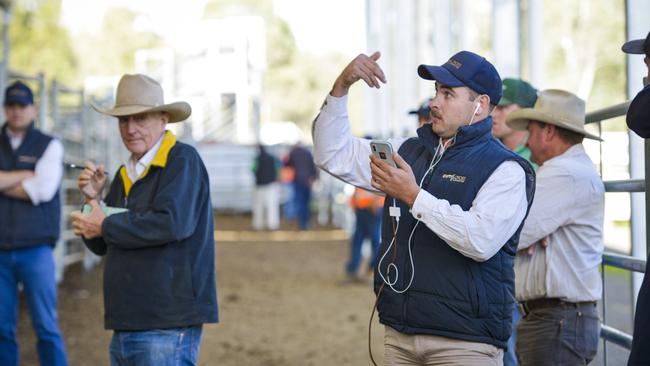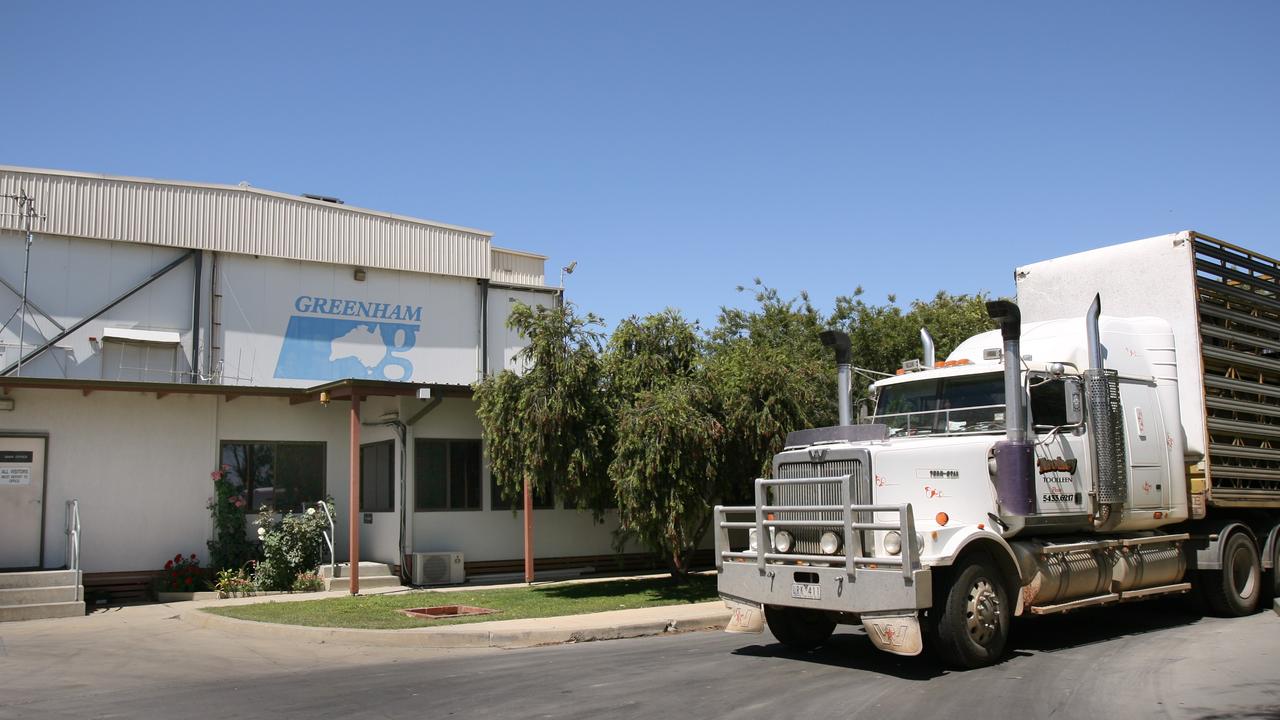AuctionsPlus shines in the time of coronavirus
Huge numbers of sheep are moving between states, while the number of buyers using AuctionsPlus is on the rise.

RECORD prices are being paid for breeding ewes as large volumes of store sheep are traded interstate.
There has been a lot happening in the store sheep industry this year, nearly all of it concentrated on AuctionsPlus as regular physical auctions are cancelled due to coronavirus. There have been no special store sheep sales held at saleyards since the pandemic began. Unlike cattle, where commission buyers and agents tend to dominate, farmers still do a lot of sheep buying themselves and social distancing rules haven’t allowed for this.
Dig down into the data coming out of the AuctionsPlus system and some of the figures are amazing, pointing to restocking in the eastern states, which ultimately will influence the number of lambs and mutton available in future seasons.
To the big picture.
Add the number of sheep and lambs that have been trucked out of Western Australia this year (calculated through the Ceduna biosecurity checkpoint on the South Australian border) to the numbers traded on AuctionsPlus in NSW and Victoria and it adds up to 1.571 million.
The breakdown by state is: WESTERN AUSTRALIA:
696,200 transported to the eastern states between January and April.
NSW: 628,855 head sold on AuctionsPlus from January till now (up 29,000 on 2019 levels)
VICTORIA: 246,466 sold on AuctionsPlus (up 78,958).
NSW has been the hot buying spot as it emerges from drought.
To put it in perspective, Teeah Bungey from AuctionsPlus, who calculated all the figures for The Weekly Times, said in the first five months of this year NSW has bought nearly the same amount of sheep from Victoria that it did throughout the whole of 2019.
The raw figures are 87,466 sheep purchased online from Victorian properties by NSW farmers so far this year, compared to 94,037 last calendar year when the north was in severe drought and trade was restricted.
Figures show the vast majority of sheep and lambs listed on AuctionsPlus by NSW producers this year remained within the state as northern flock rebuilding intensifies.
The break-up of destinations for NSW stock sold so far this year includes: 525,754 head remained in NSW; 73,004 head sold down into Victoria; 17,410 sold into Queensland; and 11,293 sold to South Australia.
Price wise, the data shows the biggest price improvements for breeding ewes was in NSW, reflecting the strongest restocking demand.
The average monthly Merino ewe price for NSW from January onwards, compared to Victoria, according to AuctionsPlus shows:
In January Merino ewes averaged $195 ($172 in Victoria);
February $192 ($196);
March $207 ($175);
April $216 ($200);
May $212 (compared to $162 in Victoria).
The figures don’t take into account quality or other factors such as age and shearing, but they do show how the price trend line has been consistently stronger in the north.
The same results are evident for crossbred ewes.
In Victoria joined first-cross ewes averaged from $300 to $342 in the past four months.
In NSW, prices for joined crossbred ewes spiked to an average of $397 in April and so far this month are tracking at $400, thanks in part to a record sale recorded just last week.
A line of 81 scanned-in-lamb first-cross ewes from a property at Deniliquin in NSW sold for a record $446.
The ewes were aged 13 to 15-months with a weight of 66kg and were detected with multiple pregnancies.
Although in a twist, the ewes sold south to a prime lamb producer at Benalla in Victoria.
Another pen of young SIL first-cross ewes from a property at Cowra in NSW weren’t far behind at $443.
Agents are reporting “unprecedented demand’’ for joined ewes as the season shapes up as one of the best ever and buyers are confident of being able to achieve good results from breeding stock.
At this stage it could be spring before store sheep selling returns to saleyards.
Elders agent Ron Rutledge said coronavirus restrictions probably needed to get down to stage two levels to allow for the bigger and mixed crowds of farmers and agents who traditionally attend store sheep sales.
As winter is a quiet time for store sheep sales anyway, it is likely to be the opening Merino and first-cross sales from August onwards that will provide the first major test of the auction system.
CORONAVIRUS has been a big disrupter for traditional saleyard stock sales, and has pushed technology and online sales to the fore.
While the auction system has moved to embrace technology, there has been a sizeable shift to other marketing methods — the most obvious being AuctionsPlus.
The unknown, and something for industry to watch, is whether the change to more technology-driven selling will be permanent or if farmers will drift back to traditional methods as the pandemic eases.
Consider this.
From January to March there were 1947 “unique” cattle producers that listed animals for sale on AuctionsPlus, according to AuctionsPlus marketing manager Lukas Postlethwaite.
That was more than double the 914 different cattle vendors who used the selling platform in the same three month period of 2019.
Out of the total number of 1947 vendors this year, 1109 of them were “new to AuctionsPlus or had not listed stock in the past nine years’’, Mr Postlethwaite said.
That is a lot of new business.
And considering store cattle prices have been running at high to record price levels, it is fair to assume most would be pretty happy with their results.
Which again goes back to the question: how much future business will technology claim now that COVID-19 has forced producers to become more familiar with it?
MORE KELLY COUNTRY


